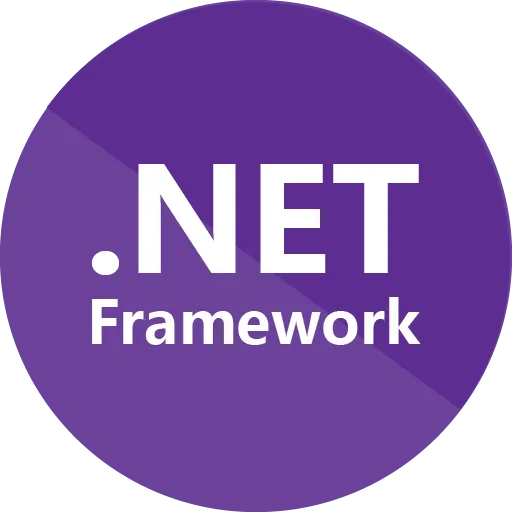
If you are embarking on the journey to become a .NET Framework developer in 2024, you’re in for an exciting ride! The .NET ecosystem is vast and constantly evolving. To help you navigate this landscape effectively, we’ve compiled a comprehensive roadmap that outlines the essential skills and technologies you should master. Whether you’re a newcomer to software development or transitioning from another tech stack, this roadmap will guide you through the key areas to focus on.
1. General Development Skills
a) Understand how the web works.
b) Version control
- Git
- GitHub
- GitLab (Good to Know)
c) Learn how to search for solutions.
- Google
- Stack Overflow
- Bing Search (Good to Know)
- ChatGPT (Good to Know)
d) Data Structures and Algorithms (Good to Know)
2. C#
a) Learn C# 12
b) Learn .NET 8
c) .NET CLI
d) Look into 13 and .NET 9 (Good to Know)
3. SOLID Principles
a) Single Responsibility Principle
b) Open-Closed Principle
c) Liskov Substitution Principle (Good to Know)
d) Interface Segregation Principle
e) Dependency Inversion Principle
f) DRY
g) YAGNI
h) KISS
4. ASP.NET Core Basics
a) Web API
b) Minimal APIs
c) Routing
d) Middlewares
e) Filters and Attributes
f) Configuration
g) Authentication & Authorisation
h) Dependency Injection
a) RDBMS fundamentals and Database Design
b) SQL Syntax
c) Stored Procedures (Good to Know)
d) Databases
- Postgres
- SQL Server
- MySQL/MariaDB (Good to Know)
5. APIs
a) REST
- Web
- Minimal APIs
- FastEndpoints (Good to Know)
b) GraphQL (Good to Know)
- HotChocolate
c) gRPC (Good to Know)
6. Design patterns
a) Creational patterns
b) Structural patterns
c) Behavioral patterns
7. Object–Relational Mapping (ORMs)
a) Dapper
b) Entity Framework Core
- Learn the basics of EF Core
- Code first & Migrations
- Change Tracker API
- Lazy Loading, Eager Loading, Explicit Loading
8. Dependency Injection
a) Microsoft.Extensions.DependencyInjection
b) Scrutor (Good to Know)
9. NoSQL Databases
a) Cloud proprietary
- AWS DynamoDB
- Azure CosmosDB
b) ElasticSearch
c) Redis
d) MongoDB (Good to Know)
10. Caching
a) Output Caching
b) Response Caching (Good to Know)
c) Redis
- StackExchange.Redis
11. Logging
a) Microsoft.Extensions.Logging
b) Serilog
12. Messaging
a) Azure Service Bus
b) AWS SQS/SNS
c) RabbitMQ (Good to Know)
d) MassTransit
13. Streaming
a) Apache Kafka (Good to Know)
b) AWS Kinesis (Good to Know)
c) Azure Event Hubs (Good to Know)
14. Testing
a) Unit Testing
- Frameworks
1. xUnit
2. NUnit
- Mocking
1. NSubstitute
2. Moq
- Assertion
1. FluentAssertions
- Test Data Generators
1. Bogus
2. AutoFixture (Good to Know)
b) Integration Testing
- WebApplicationFactory
- Respawn (Good to Know)
- Docker (Good to Know)
c) Snapshot Testing
- Verify (Good to Know)
d) E2E Testing
- Playwright (Good to Know)
e) Performance Testing
- K6
- NBomber (Good to Know)
- JMeter (Good to Know)
15. Real-Time Communication
a) SignalR
b) Web Sockets (Good to Know)
16. API Documentation
a) OpenAPI/Swagger
b) AsyncAPI (Good to Know)
17. API SDK Libraries
a) Refit
b) RestSharp
c) Flurl (Good to Know)
18. Task Scheduling
a) BackgroundService
b) PeriodicTimer
c) HangFire (Good to Know)
19. Monitoring and Telemetry
a) OpenTelemetry
- Jeager (Good to Know)
b) Prometheus
c) Grafana
d) ELK Stack
e) Datadog (Good to Know)
20. Containers
a) Containerization
- Docker
- Podman (Good to Know)
b) Orchestration
- Kubernetes
21. Cloud
a) Cloud providers
- Azure
- AWS
b) Serverless
- Azure Functions
- AWS Lambda
c) File storage
- AWS S3
- Azure Storage
22. Continuous Integration & Deployment
a) GitHub Actions
b) TeamCity
c) Octopus Deploy
d) Azure Pipelines (Good to Know)
e) Gitlab CI (Good to Know)
f) Jenkins (Good to Know)
g) Build Automation (Good to Know)
- Cake (Good to Know)
- Nuke (Good to Know)
23. .NET Libraries
a) Polly
b) FluentValidation
c) Humanizer.Core
d) Benchmark.NET
e) MediatR (Good to Know)
f) Units.NET (Good to Know)
g) NodaTime (Good to Know)
24. DevOps
a) Infrastructure as code (Good to Know)
b) Terraform (Good to Know)
c) Pulumi (Good to Know)
25. Keep Coding
Congratulations on reaching this point in the roadmap!
Remember, continuous learning and hands-on coding are key to mastering the .NET Framework. Stay curious, explore new technologies, and keep building exciting projects. Your journey as a .NET developer is just beginning, and the opportunities are endless.
Happy coding!